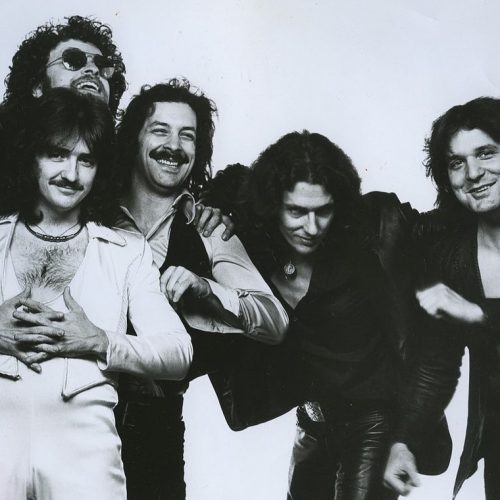Lots of songs have spawned great movie moments.
The “Tiny Dancer” singalong in Almost Famous, The Breakfast Club’s epic ending set to “Don’t You (Forget About Me)”, Trainspotting’s iconic “Lust For Life” getaway. These scenes would be nothing without the songs that soundtrack them, but the songs are forever tied to those movies as a result. They evoke the mood of those films every time you press play, putting you back in the car, or back on the football field, or back on the tour bus.
“(Don’t Fear) The Reaper” is the exception.
Sure it’s iconic, but the pop culture moments that made it that way are so varied that it’s impossible to pick just one. From Jamie Lee Curtis being stalked by Mike Myers in John Carpenter’s 1978 Halloween, to teens arguing about the track in 1994’s drug comedy “The Stoned Age”, to Will Ferrell’s hilarious ‘More Cowbell’ skit – the song’s appearances have run the gamut from horror, to comedy, to satire.
Again in 1994, the song featured on the first episode of Stephen King’s The Stand, playing as the camera panned across those dead or dying from an untreatable virus, and cementing the track as a darling of the horror genre. Then, after enduring decades as a stoner flick favourite, its varying uses converged in 2009: in horror-comedy Zombieland, it soundtracked a scene that saw Bill Murray and Woody Harrelson get high amidst the apocalypse.
It has been used by movie after movie to convey wildly divergent feelings, and yet still belongs entirely to itself.
When you think of “(Don’t Fear) The Reaper”, your mind doesn’t jump to one of its countless covers or references, it goes straight to that timeless, unmistakable, riff. The lyrics, though also unmistakable, ensure it can be appropriated and re-appropiated: poetic enough to sound classic even when the track was contemporary, amorphous enough to relate to any subject matter.
Some have said that all media is an attempt to understand humanity’s two driving forces: sex and death. If that is true, then there’s no mystery to why “Reaper” has remained compelling for as long as it has. The themes could not be more grandiose, the song swirls around questions of love and sacrifice, referencing Romeo & Juliet – the most romantic and tragic couple of all time.
It asks a question that is as relevant to ageing lovers as is it to overdramatic teens in the throes of their first crush: can love overcome mortality? The answer it gives is wish-fulfilment in its purest form: a flowery, melancholic, resounding yes. It’s sad and dark but ultimately hopeful – turning even the most mundane day into a tumultuous doomed romance in which you are the protagonist.
“Reaper” has been captivating listeners for decades, and it will continue to spellbind people for decades more. When it comes down to it, the reason for that is simple:
The songwriting isn’t just timeless, it’s ageless.
The themes it deals with will never go out of fashion, and the wisdom it offers has been retold and passed down for centuries. The ending of the stories is always the same, we love and then we die, but that doesn’t stop us pressing play. We can’t stop listening, we have to know what comes next.







